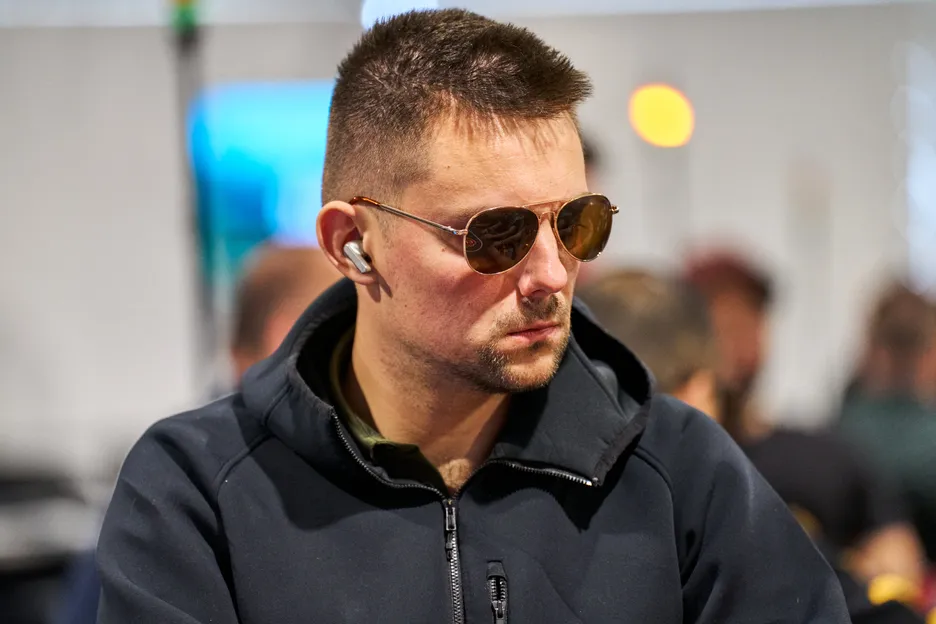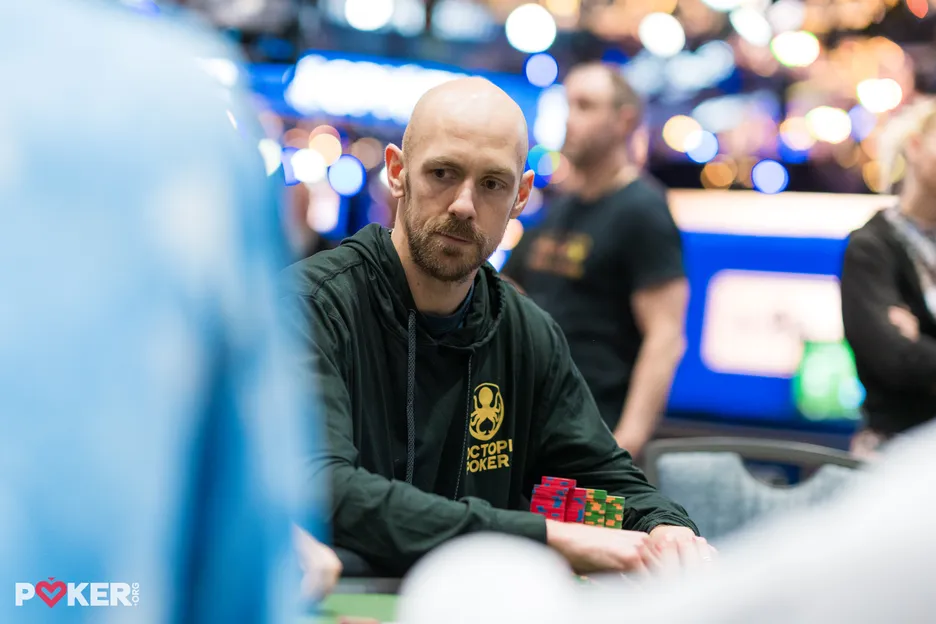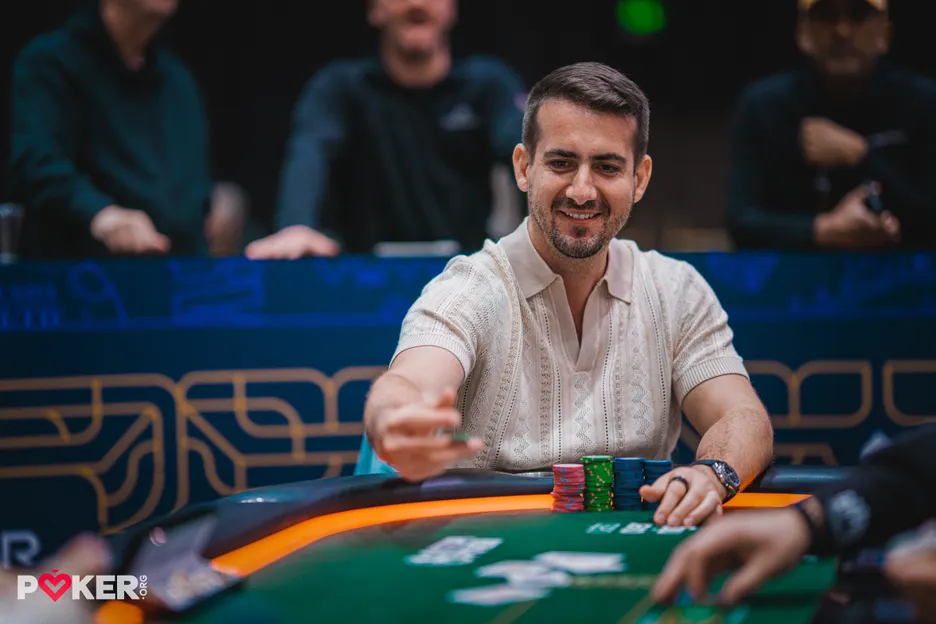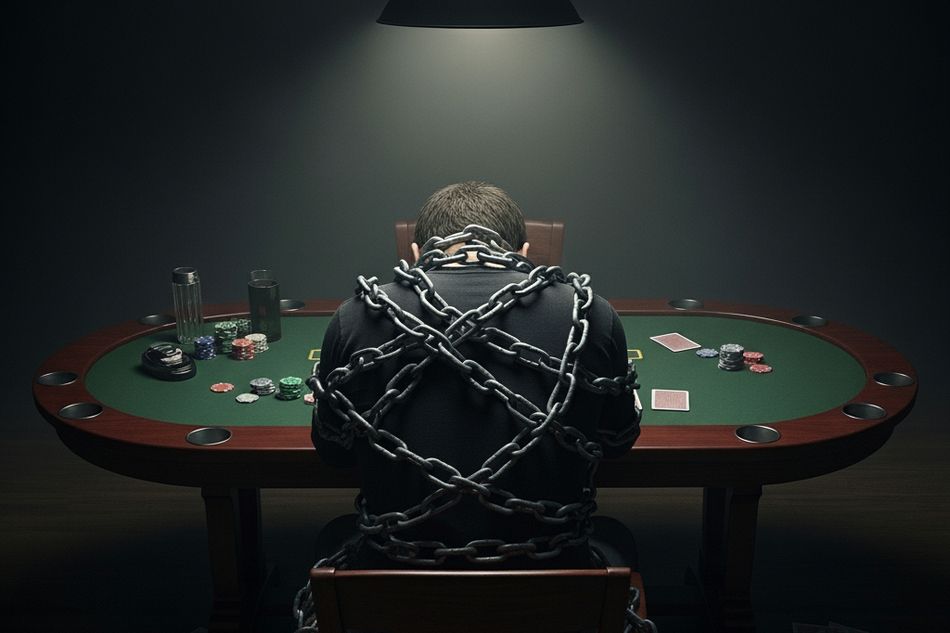“I’ve lived through times that felt unbearable…” – Stephen Chidwick
Success in poker is acutely measured by stacking up big scores, championship titles, and peer validation. But behind the accolades lies a quieter struggle — the mental, psychological, and emotional toll on players.
It cuts deep. Even the strongest minds can be pushed to the edge by the long hours, constant travel, and brutal financial swings of the game.
A 2023 study in the UK by GambleAware found that rates of depression and anxiety were significantly higher than in the general population: ‘Professional gamblers have significantly higher rates of depression, fatigue, stress, loneliness, obsession, loss of self-worth, anxiety, and even suicidal thoughts.’
When players reach breaking point, many tend to withdraw into themselves. Mental health struggles, untreated and unrecognized, can fuel tilt, burnout, fractured relationships, and a loss of confidence, as the relentless pressures of a poker life hit hardest.
Mental health may be one of the poker community’s most pervasive yet silent crises. For too long it’s been dismissed, buried, and pushed into the shadows. It’s time to bring the conversation into the open and let the light in.
‘All my issues are mostly bottled up and hidden’ – Rayan Chamas
Recently, a spotlight has fallen on mental health due to several courageous players slowly cracking open poker’s culture of silence, speaking openly about how these internal battles have shaped their daily lives and affected their performance on the felt.
One player who no longer chooses to stay quiet is professional Rayan Chamas, also known as ‘Beriuzy.’
In a brave and vulnerable post two years ago on X, Chamas chose to open up about the mental strains and struggles of the game, in part due to a close poker friend taking his life.

Rayan Chamas is no longer silent about his struggles.
“All my issues are mostly bottled up and hidden,” said Chamas. “I come across as happy on stream or in person all the time, it’s because I mostly am. However, that’s due to forced amnesia. I have been dealing with severe anxiety for a while now, and self-medicated with social drinking. Streaming kept me super distracted, and winning tournaments was another way to hide from the pain.”
Stephen Chidwick steps forward
Most poker professionals rarely, if ever, express the quiet part out loud. It’s a sad truth: most players will never speak up.
It’s not hard to see why. Discussing one’s own mental health publicly in the poker community is akin to walking a razor’s edge of susceptibility; no matter which direction you step, cuts are unavoidable.
The fear of vulnerability in such a competitive industry can cause players to retreat even further into silence, worried that opening up will be perceived as a leak or a weakness that can be exploited.
You’re not broken. You’re not beyond help. Keep going.
Rayan Chamas isn’t alone in facing these struggles. One of the game’s most successful players, Stephen Chidwick, recently made his first post on X, detailing several mental health struggles he has encountered during his long and storied career.
“In 2019, I was voted by my peers in a CardPlayer magazine survey to be the best player in the world…
“Now that I was painted as “the best”, there was no margin for error. Despite everything I had accomplished, I was no less fragile. How much longer can I keep tricking people into thinking I’m so good when I know how big my mistakes can be?”
Chidwick further revealed some aspects of his journey toward healing to deal with the mental health issues that arose while competing at the highest levels.
“This message is for anyone who feels trapped in the darkness. I’ve lived through times that felt unbearable — where the idea of peace, or connection, or even a quiet mind felt impossibly far away. If you’re in that place right now, I want you to know: it can get better. You’re not broken. You’re not beyond help. Keep going.”

Stephen Chidwick opened up about mental health struggles in a post on social media.
Omar Sader
The vulnerable and courageous post from Chidwick is worth reading from start to finish, offering insights into the mind of one of the best in the game and his ongoing journey to balance.
That his post was met with such overwhelming positivity from the wider poker community is a testament to both the power of his message and his qualities as a human being.
‘Isolation can be dangerous’
The reality is that many poker professionals will, at some point, face debilitating mental, psychological, or emotional health challenges during their career in the game.
Brad Ruben is a five-time WSOP bracelet winner whose openness about his own struggles has fueled his commitment to mental health advocacy; beyond the felt, he has mentored players, supported those facing challenges, and hosted charity events benefiting combat veterans with PTSD.
“After causing a fatal car accident, I carried the weight of that trauma for years. The guilt and shame often pulled me into depression, and at my lowest moments, I wrestled with suicidal thoughts.
“I later realized I wasn’t only living with PTSD — I was also experiencing moral injury, a fracture in my sense of integrity. Alongside that came anxiety, self-doubt, and emotional volatility, all of which poker magnified through its swings, long hours, and isolating grind.
“Because my situation was public, I’ve been able to speak about it openly rather than bottling it up — but many players don’t have that outlet. Too often, they fight their battles in silence, and isolation can be dangerous because we’re not meant to heal alone; true recovery happens when we let others in.
“The game reflected the very pain I wanted to bury, but in doing so, it also gave me a lens through which to face it. Poker has shown me that real strength isn’t in hiding what we feel, but in confronting it honestly and leaning on each other for support.
“If sharing my story helps even one player realize they don’t have to carry their pain alone, then that’s worth more than any win I’ll ever have.”

Brad Ruben carried the trauma of a car accident “for years.”
Hayley Hochstetler
Finding balance
‘Mental health’ is often boiled down to a single diagnosis or a defining label; a better way to look at it might be as an all-encompassing sum of our emotional, psychological, and social well-being, and the ongoing pursuit and practice of habits and choices that lead to good health.
The consequences of neglecting mental health in poker can be devastating, draining the love of the game, wrecking finances, triggering depression, straining family and friendships, and, at the most extreme, leading to suicidal thoughts.
Mental health is a complex interplay of factors that contribute to overall well-being, encompassing emotional, cognitive, and psychological health. This is primarily determined by a player’s ability to cope with the constant uncertainties of a career in poker, as well as daily life. It’s a balancing act best approached with acute self-awareness, as proper mental health isn’t simply the absence of illness.
At its core, good mental health bestows resilience — giving players the strength to realize their potential at the tables while still finding purpose, balance, and fulfillment beyond the game itself.
If success in poker involves optimization — of mindset, study, practice, and focus — then spending time on your mental and emotional well-being is essential to becoming the best player you can be. And more importantly, the best, happiest version of yourself.
As our series on mental health in poker continues, we’ll look more closely at players’ coping mechanisms, how they deal with misfires during their struggles to remain healthy, and the practices and stories of resilience that players are cultivating.
Check back soon for more.
If you’re struggling with mental health issues, help is available. FindAHelpline.com can connect you with professional support services in almost any country in the world, while the Suicide and Crisis Lifeline is available within the USA by dialing 988 anytime.

